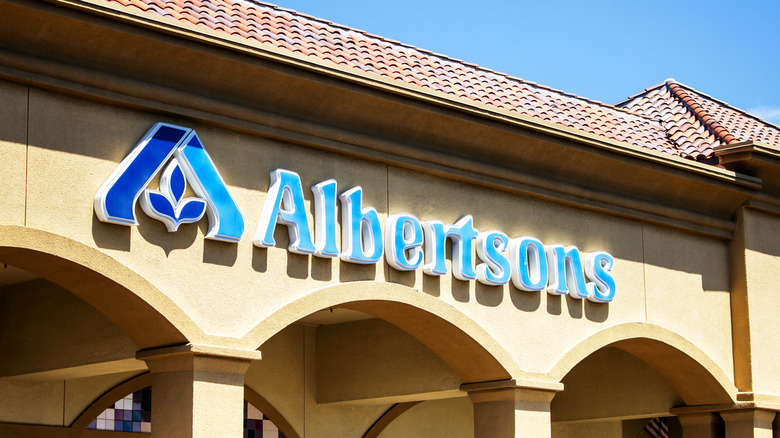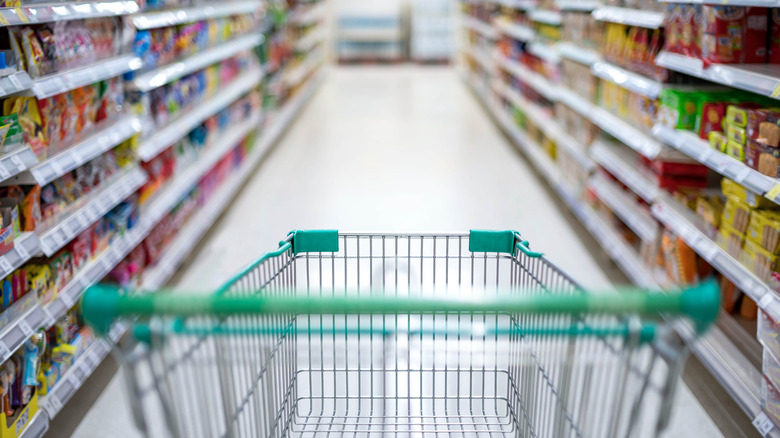How The First Albertsons Was Different From Other Grocery Stores
One look at their website and you'll learn that Albertson's prides itself on sourcing local food and drugs to sell to its clientele, with a focus on "helping people across the country live better lives by making a meaningful difference." What began in 1939 with a single store developed over the years into a merger with Safeway and 2,200 grocery stores in 33 states as of 2015, making the company one of the biggest grocers around.
Groceteria explains grocery stores first started to pop up in the early 20th century. Most grocery stores were "generally less than a thousand square feet," and tended to focus on one specific aspect of the market, typically "dry grocery items, canned goods and other non-perishable staples," while butchers and fresh produce were found in other specialized stores.
"Self-service shopping," the style of food shopping we do today involving independently picking out desired items from aisles and shelves, didn't come about until a few years later, and chain stores took even more time to make their way into the mainstream. But even from its conception, Albertson's wasn't your typical grocery store.
More than one thousand square feet? Unheard of — until now!
Albertsons opened in 1939, which was a little bit later in the game. But where it stalled, it learned, and they did things a bit differently than other grocery stores. According to Groceteria, Albertsons actually opened as a 10,000 square foot space, which they estimated to be "nearly eight times the size of a typical store in 1939." They also had five different departments serving "everything from fresh produce to bulk and packaged foodstuffs and quality meat and fish," meaning it wasn't based on the traditional grocery store model at the time that only catered to one single specialty.
They offered produce, coffee, and meats all in one convenient place! And while that may be the norm now, it was a completely foreign concept back then. So we may have Albertson's to thank for the convenience and ease we have at most grocery stores now, although they also may be responsible for the longer lines as a result.

